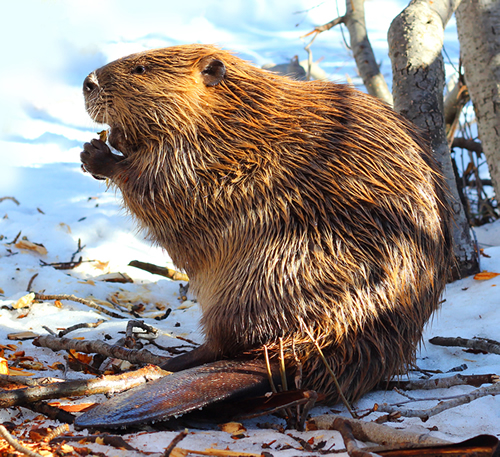Wildlife
- Squirrel
- Rat
- Bat
- Mice
- Raccoon
- Dead Animal
- Birds
- Snake
- Beaver
- Opossums
- Bobcat
- Armadillo
- Wildlife Management Programs
Domestic Animals
Pest Control
Trash Removal
Beavers
If you are currently dealing with domestic or wildlife problems here are some quick numbers to get direction and resolutions to your animal or insect problems:
- Florida - Domestic Animals ( Cats and Dogs ): 305-884-1101
- Florida - Wildlife Removal, Control (Squirrels, Bats, Rats, etc): 877-427-1524
- Georgia - Domestic Animals ( Cats and Dogs ): 706-790-6836
- Georgia - Wildlife Removal, Control (Squirrels, Bats, Rats, etc): 877-427-1608
- Miami & Ft Lauderdale - Pest Control Services (Termites, Roaches, etc): 786-251-9640
- Palm Beach & West Palm Beach - Pest Control Services (Termites, Roaches, etc): 877-590-0462

Appearance:
The beaver (Castor canadensis) is Florida's largest rodent, normally weighing 30-50 pounds. The beaver has a heavily muscled body covered with glossy brown fur with a dense grayish underfur and large, orange-yellow, chisel-like incisor teeth. The back feet are webbed for swimming and the broad flat tail is used as a rudder, a propeller, or may be slapped on the water as a warning.
Habitat:
These mammals excel at swimming, felling trees and building dams. The dams create ponds that provide beavers with deep water where they can find protection from predators - entrances to dens or lodges are usually underwater. Some beavers in Florida do not build the massive stick lodges associated with northern colonies. Instead, they are more likely to live in deep dens in the banks of streams, usually as a pair with their offspring from two breeding seasons.
Today the beaver thrives along many of the perennial streams and rivers that course through the landscape of the Florida panhandle and upper peninsula. As architects of wetlands, beavers provide habitat for nesting wood ducks, migratory waterfowl, otters, turtles and fishes.
In northern Florida beaver dams may block drainage systems and flood roads, crops, and timberland. Hungry beavers occasionally chew down ornamental trees and venture into fields to feed on crops like sorghum and corn. Wire or hardware cloth fencing at least 3.5ft (1.2 m) high may prevent damage of valuable trees. Daily destruction of dams and removal of dam building materials sometimes will cause a beaver colony to abandon an area. The insertion of water control structures into existing beaver dams can be effective at preventing excessive flooding. Problems beavers may be trapped and relocated but permits from the FWC are required from the regional office.
Behavior:
Most trees cut by beavers are one to six inches in diameter, but the animals leave their mark on a wide variety of trees and shrubs, feeding on the inner bark and tender shoots and twigs. Roots, grasses, sedges, ferns and other water plants comprise the remainder of their diet. Beavers float or drag tree sections to the dam site and wedge them into place with absolute precision. They can close their nostrils and ears when underwater, have transparent eyelids that cover the eyes like goggles and can stay below the surface for up to 15 minutes.
Beginning in the late 1700s, beavers were the most intensively and widely sought natural resource of the continent, largely due to the European demand for beaver pelt hats. Few beavers were left in North America by the late 1800s. Through restocking and other conservation and management practices in the 1900s, populations have rebounded throughout the continent. The beaver occurs in North Florida, about as far south as the mouth of the Suwannee River, and can live on streams, swamps, or lakes having a suitable supply of trees for food.
Beavers are primarily nocturnal, so despite the resurgence in their population, it is not common to see one. You are far more likely to see beaver signs - a stump or branch chewed to a point, like an oversized pencil, or the beaver dam itself.
The two most common problems associated with beavers are the flooding that results from blocked structures, such as culverts, and the damage to trees.
Flooding can become a crisis after unusually heavy rain or snow brings on water that has nowhere to go. On the other hand, dams can store water during periods of drought and slow down the movement of water from land to river systems that is often responsible for serious floods and significant financial damage downstream.
Damage to trees in urban and suburban areas is likely to be noticed before it becomes critical but perhaps not before a valuable tree or two have been lost. Operators of commercial forests, especially in the southeast, attribute millions of dollars of timber loss annually to beaver.
